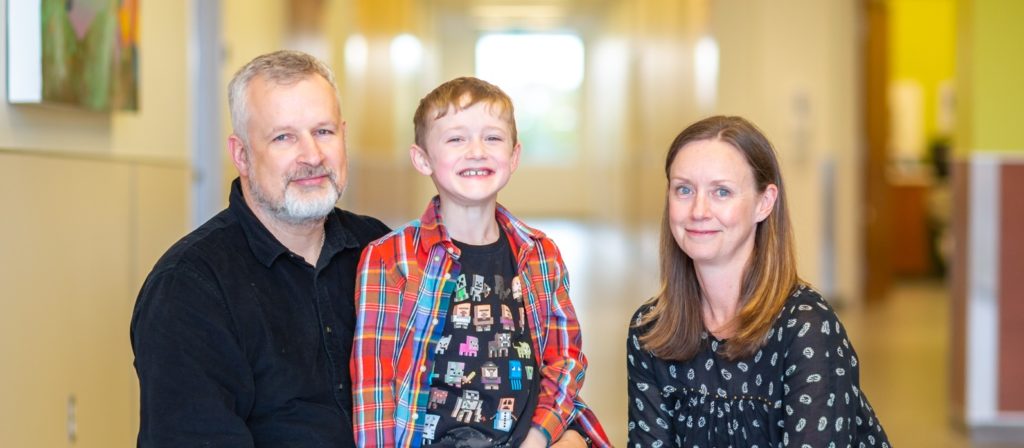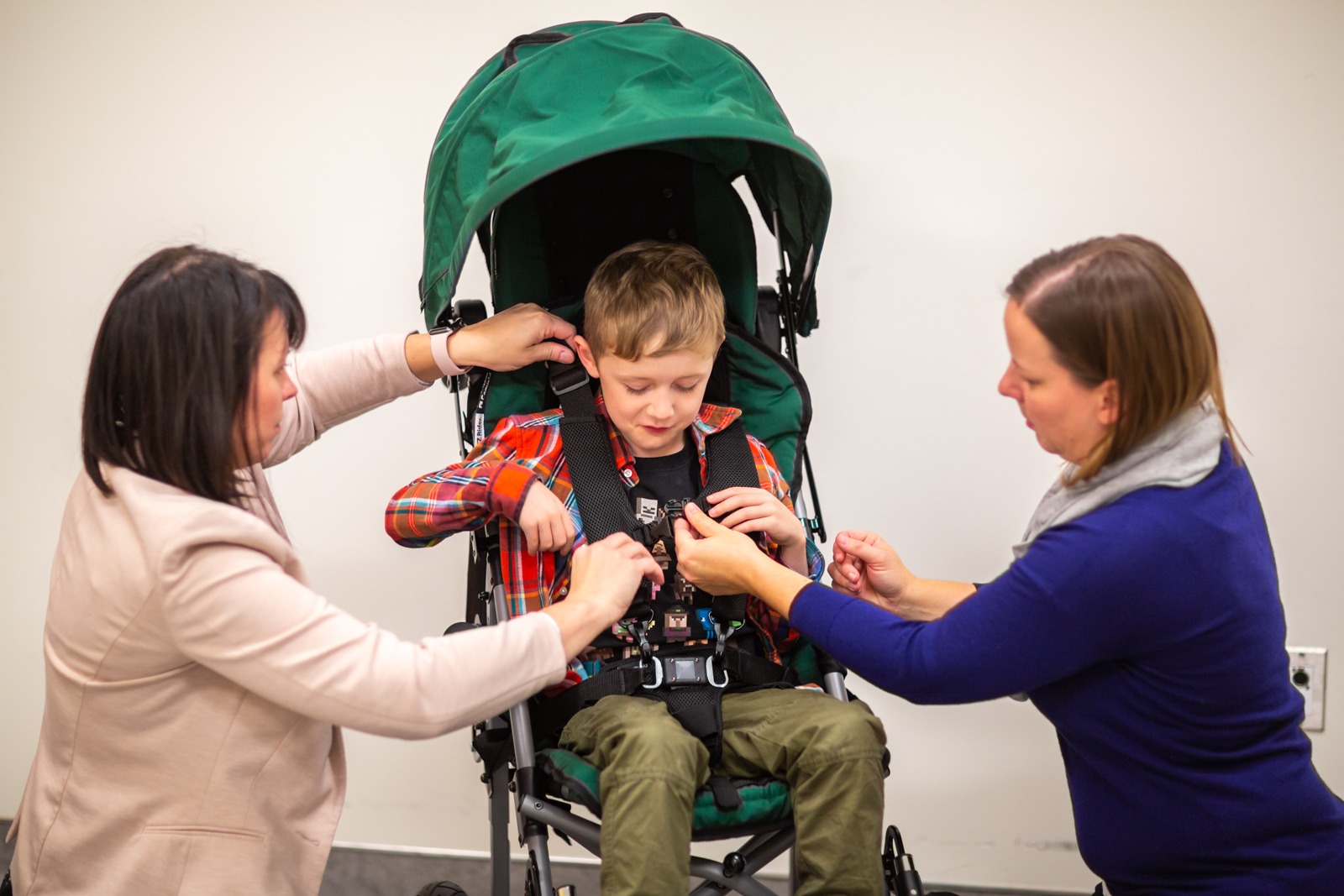
Moving forward with Duchenne Muscular Dystrophy
It’s a milestone most families don’t have to encounter. One that opens up new possibilities. But one that also signifies the next chapter in a book with only so many pages left. A good book. The kind you don’t want to put down. The kind you hope never ends.
In October, eight year old Max picked up his new stroller from Ron Joyce Children’s Health Centre (RJCHC).
“It’s bittersweet,” says his dad, Andrew. “It was sweet because Max was very happy to get a new stroller. For him it means more freedom, as he can save energy on outings for the things that interest him. Bitter because his stroller isn’t really a stroller. If I am honest, his stroller is a wheelchair, and a wheelchair isn’t something any parent dreams about getting for their child.”
Max has Duchenne Muscular Dystrophy (DMD), a genetic disorder that causes muscles to slowly deteriorate and get weaker. Most people with DMD use a wheelchair full-time by time they reach age 13. There is no cure, but Max’s family is working hard to change that.
Being a kid was getting harder
Max’s muscle weakness was causing him to fall, and also making it hard for him to participate in fun activities. He would get so tired from walking to the park that he couldn’t enjoy the jungle gym when he got there. He and his parents talked about whether it was time to get a stroller to give his muscles a break. They decided it was.
Max and his family met with Terri Malchow, his occupational therapist (OT) at RJCHC, to talk about his options. Terri’s role as an OT is to support Max and his family in finding ways for him to be as independent as possible. Through the RJCHC seating clinic, she also works with families to who need mobility devices to ensure they get the most appropriate device.
“When you first get news like this, you feel very alone.”
“When I met with Max’s parents, they told me he would complain of tiredness and ask to use his younger sister’s stroller, or a wagon, for a break from walking,” says Terri. “Since children at Max’s age do not often fit in commercial strollers any longer, we looked at different options that would meet his need.”
Max was fully on board. It took his parents a bit longer to get used to the idea.
The Duchenne Muscular Dystrophy diagnosis
When Max was diagnosed with DMD a few months before this third birthday, his parents were gutted. They had never heard of it before, and felt the dreams they had for their first born slipping through their fingers. “When you first get news like this, you feel very alone,” recalls Andrew.
It took time, but Andrew, and Kerri, Max’s mom, found purpose in supporting DMD research. They focused on normal family life, finding joy in visits to Hamilton’s waterfalls and parks. As Max’s DMD progressed, those family outings became more challenging.
As they planned for a trip to Quebec City this past summer, Terri suggested they test drive a stroller during their vacation. With the stroller in tow, their family was able to tour the city more confidently. When Max needed a rest, he could ride instead of walk. It allowed them to explore without worry. Max was able to enjoy each attraction since he wasn’t spending most of his energy en route.

When they returned from the trip, they reconnected with Terri to have Max fitted for a stroller of his own.
Moving forward
Ask Max what he thinks about getting a stroller, and you’ll hear he’s pretty excited. It will be his chariot for trips to the park, visits to the local bakery for a treat, and walks on Hamilton’s scenic trails. His parents and care team want to keep fostering this optimism. The stroller really is a tool for Max so he can enjoy what’s most important to him.
“It’s about helping Max conserve strength and energy for those activities that are most meaningful to him,” says Terri.
For his parents, the stroller is still bittersweet. “The experience has been as positive as it possibly could be,” Kerri says. “Terri is fantastic and really relates well to Max. And Max sees the benefits of it.”
It has come to symbolize the strength with which they must confront DMD.
“The stroller is about facing what’s needed and moving forward.”
Because forward is the only direction they can go.
